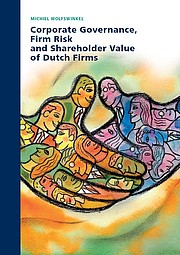Corporate Governance, Firm Risk and Shareholder Value of Dutch Firms Defended on Friday, 8 March 2013
This dissertation consists of three studies in the field of corporate governance. The research examines the impact of the way Dutch firms are managed and controlled on risk characteristics and the implications for shareholder value. The first study examines the relation between board interlocks and firm risk. In particular, we measure the effect of supervisory directors’ connectivity on firm risk. We find yet unknown aspects of connectivity and based on our findings the validity of the motivation behind recent Dutch civil law amendments can be questioned. In the second study we examine how firms adapted their communication with investors to the changing demands of the financial markets in the 1990s. Using Royal Philips NV as a case study we find that Philips’ communication was not able to satisfy the demands of the changing financial markets. As a consequence, its shareholders have suffered billion euro value losses. In the third study, we measure the effect of managers’ discretion offered by takeover defenses on shareholder wealth. Dutch firms are known for the frequent use of takeover defenses, protecting managers and providing them a relatively strong position towards shareholders. We find that acquisitions conducted by Dutch firms generate significant positive abnormal announcement returns, which suggests that shareholders have other means to control management.
Keywords
corporate governance, firm risk, shareholder value, board interlocks, acquisitions








